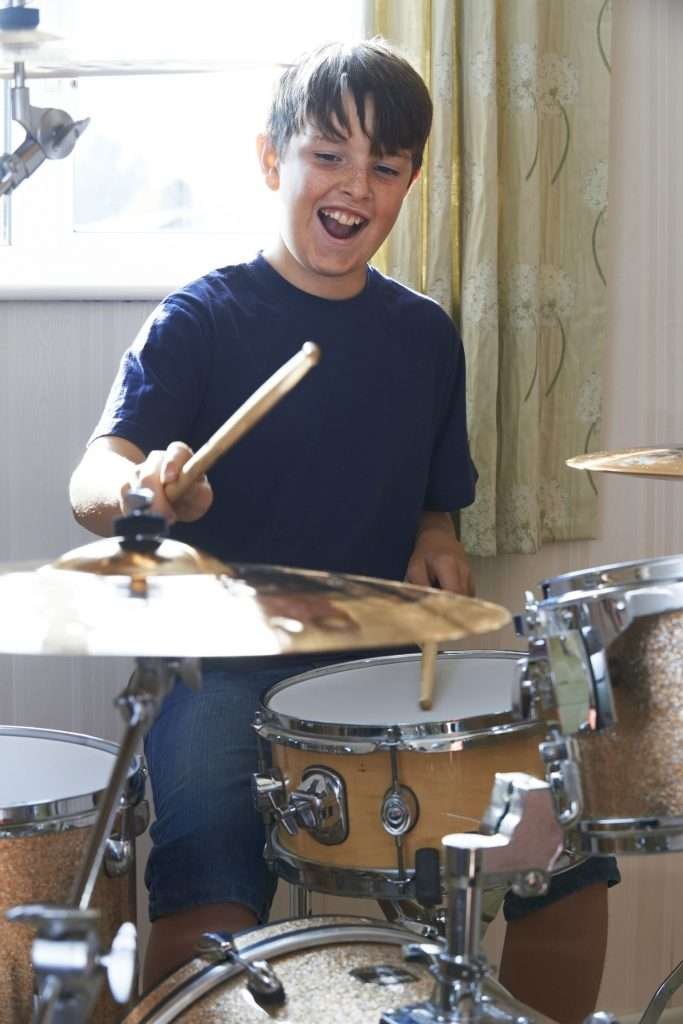The essential setup includes a drum pad and drumsticks. Most of what is being practiced on the drums is executing the techniques. With that in mind, the drum practice pad and sticks are perfect for this.
Drummers all around never outgrow the use and function of the drum pad; plus, it’s extremely cost-efficient. Drum pads are great for practicing rudiments like drum rolls, paradiddles, and flams. It’s also great for snare-drum solos, as well as speed and volume control exercises.
After learning the fundamental techniques, you’ll be working on interdependence, that is, the timing of all four limbs on the drums. When playing the drums, your arms and legs will work simultaneously. This won’t be easy to learn using a drum pad, so you’ll need an electronic or acoustic drum set.
An electronic drum set provides realistic pedals and triggers for practicing timing and interdependence. The advantage of using this is that it’s low-profile and compact. You can also adjust its volume and use headphones, making it easier to hear during online lessons.
Electronic drum sets allow you to practice the full range of motions necessary for interdependence. Compared to an acoustic drum set, it’s more affordable, making it a great choice if your budget is a concern.
When buying an electronic drum set, be sure that it has an audio out via USB. This allows you to connect it to the computer. Without this, online music teachers may not hear you so well.
The true acoustic drum set is what you should opt for if you are looking to get the most of your drum lessons. Real drums are the best option since these have the sensitivity that electronic drums can’t replicate. Understandably, your music skills will be best expressed and evaluated using the authentic instrument.
Although you’ll also learn the interdependence and timing with an electronic drum set, an acoustic one provides a whole different experience. You will be using real drums where you can produce a full range of sound.
Do take into account that acoustic drum sets are louder, so this may not be practical if you live in a quiet area. Also, you will need to find a way to use a microphone for the drums. This is to make it more audible for your instructor.
Naturally, you’ll need a laptop or desktop computer to start online drum lessons. Having larger screens is best for a wider view. Aside from that, you’ll need a headset to communicate with your instructor.
Additionally, you’ll require an internet connection with a speed of at least 5Mbps, though 10Mbps plus is recommended. You’ll need to be online to communicate with your teacher, watch video lessons, and download songs and sheet music.
For live online lessons, you’ll need a video chat software program like Skype, Facetime, WhatsApp, Google Hangouts Meet, or Zoom. There are a lot of quality applications available; talk with your teacher to know which one to use.
For note-taking, have a notebook and a pen or pencil handy.
To learn how to play the drums efficiently, it’s best to find music teachers who can guide you. Throughout your online lessons, your drum teacher will assist you in setting up the drum set, practicing, and note-taking.
From the very beginning, online music teachers will help ensure that your setup is working. They will also check if your hands can be seen and your position is comfortable enough to play the drums.






